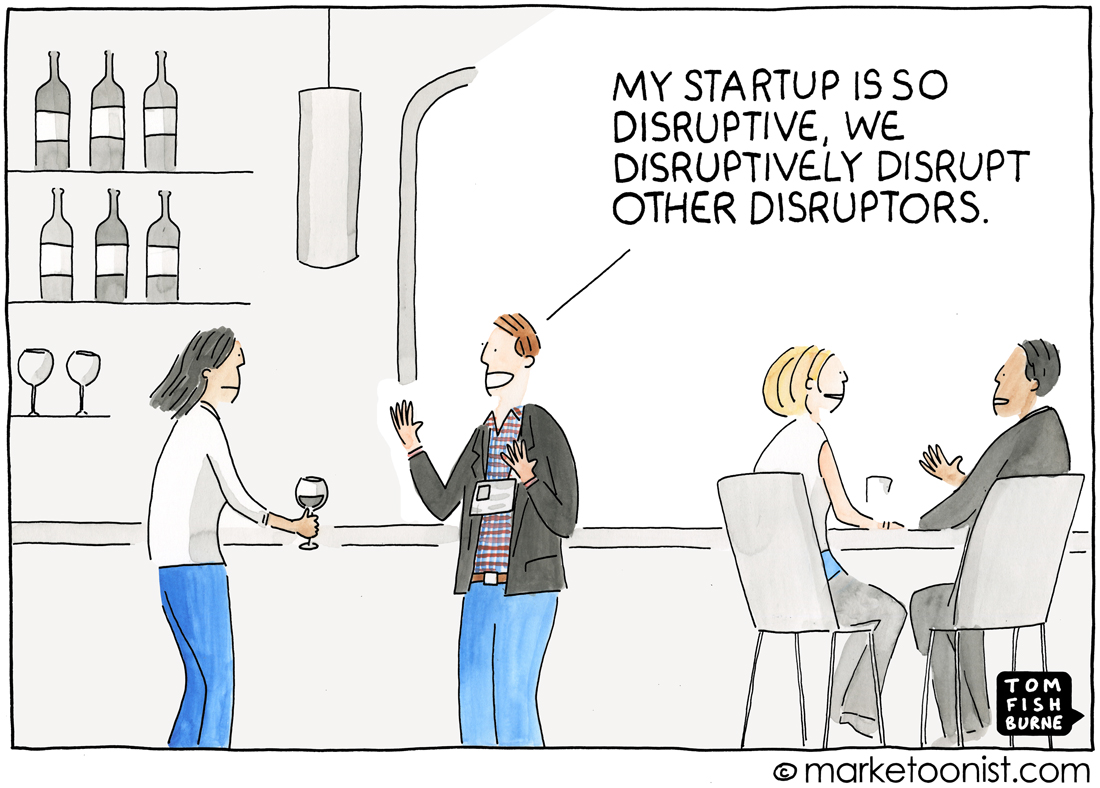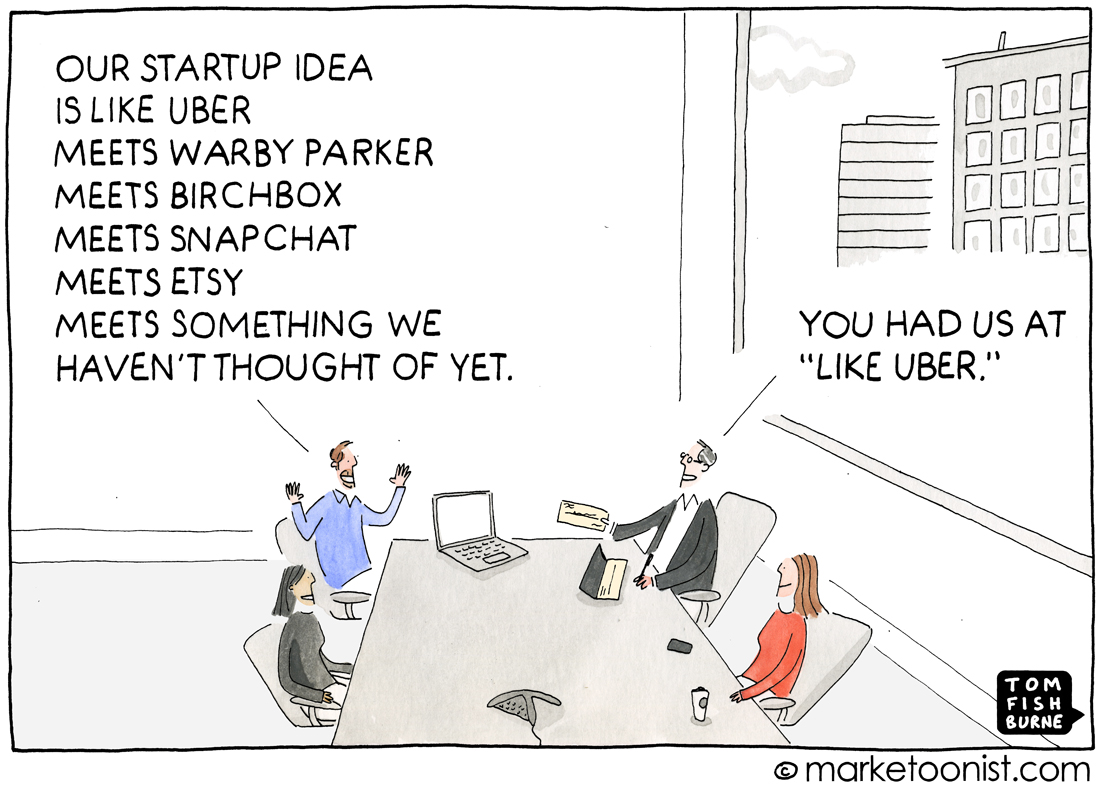When every innovation claims to be disruptive, disruptive loses its meaning. This is particularly the case in startups, where the word “disruption” is almost a business pitch requirement nowadays.
We have to be careful of the echo chamber in innovation. Most of what is claimed to be disruptive is really just just an incremental innovation with a large dose of hubris. Sometimes it’s just the hubris.
Sure, we live in a time of massive change. A few months ago, San Francisco’s largest yellow cab company filed for bankruptcy just 5 years after Uber officially launched in the city. But examples like that have given rise to a “disruption” feeding frenzy where every innovation seems overly geared to overthrow what was there before.
By chasing disruption for disruption sake, businesses risk breathing their own exhaust. And in so doing, they can lose site of the actual person they ultimately hope will use their new innovation.
I stumbled across this quote from Liz Lopatto about the pitfalls of chasing disruption in health startups:
“Right now, there’s a lot of cheerleading for “disruptive” opportunities among VCs. What many firms seem not to understand is that though there are massive revenue opportunities in health care, “disrupting” patients’ lives can lead to death. “Ask forgiveness, not permission” works fine in software. The medical field doesn’t move as fast as the software industry because moving fast and breaking things is fine for things but not for people.”
As many startups hunker down for a bursting tech bubble in 2016, it’s a good time for all businesses, tech and not, to refocus their strategy on innovations that really matter to actual people who will actually buy them.
I drew the following two cartoons on this topic two years ago. At the time, I wrote, “The most powerful way to talk about a new product or business is Plain English. The more innovative your product actually is, the less you’ll need to use buzzwords to justify it.”





Ori Pomerantz says
A lot of startups optimize the company to sell shares to VCs, not to sell a product or service to customers. VCs make their money from the rare black swan with x100 returns, not the reasonably good investment that doubles or quadruples in value. They want the high risk / high gain side of things, which by its nature has to be disruptive.
However, at the end of the day, VCs are NOT THE CUSTOMER. Too many people forget that.